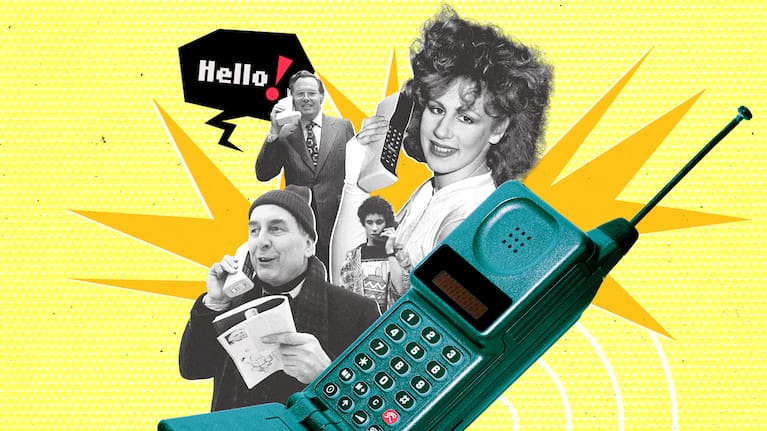Fifty years ago today, history was made on 6th Avenue, New York, as Motorola engineer Martin Cooper made the first mobile call.
Ironically, he thought the best person to call was his competition.
"It occurred to me I had to call my counterpart at The Bell System... Dr Joel Engel," said Cooper.
"And I said, 'Joel, this is Martin Cooper... I'm talking to you on a handheld cell phone. But a real cell phone, personal, portable, handheld.'

"There was silence on the other end of the line. I think he was gritting his teeth."
Five decades later, the mobile phone has evolved from a large, clunky handset that could only make or receive calls, to a personal mobile computer with a previously unthinkable amount of power.
“We've had this incredible period over the last 50 years of technology, innovation and change,” said tech commentator and futurist Paul Spain.

"From where I left school to where we are now, we have seen improvements of computing power and internet speeds of a million or more times."
Meanwhile, One NZ (formerly Vodafone) chief executive, Jason Paris, marked the mobile phone’s development by the ‘Gs’ - 2G, 3G, 4G, and 5G.
"The big leap was 4G in the smartphone where all of a sudden your phone in your pocket changed from being a communication device to a life remote," he said.

While the development of the mobile phone unleashed countless opportunities for those who owned them, it also created problems.
For example, research in the US found that by 2021 one-in-three Americans had fallen for a mobile phone scam.
In New Zealand, last year, Kiwis lost $1.7 million to marketplace scams, according to CERT – much of those accessed through a phone.
"Possibly more worrying is the harm that we are doing to each other via these networks," said Sean Lyons of Netsafe.
"The communications harm, the harassment harm, the bullying when people find themselves in connection of contact with another person."

Even Martin Cooper, dubbed 'the father of the mobile phone', thought they could be too much of a distraction.
"I am devastated when I see someone crossing the street and they are looking at their cellphone!"
But he believed the technology had a bright future.
"One of the things that will change is that your phone will be managed by your own personal artificial intelligence," said Cooper.
"In the future we can expect the cellphone to revolutionise education, revolutionise healthcare."


















SHARE ME